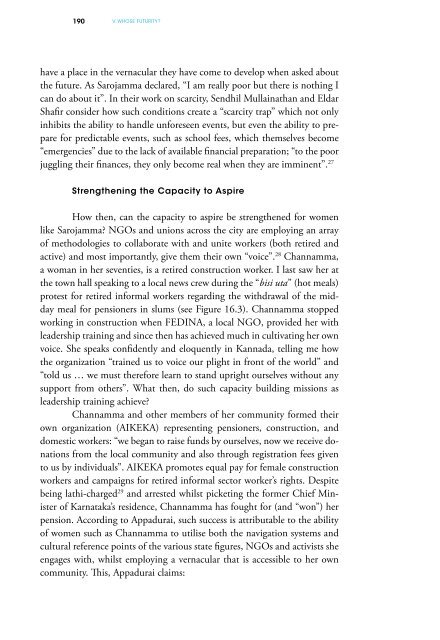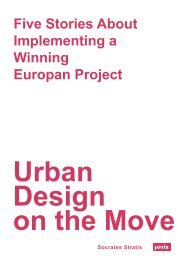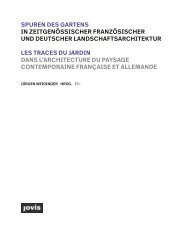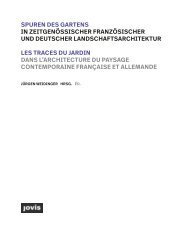Urban Asias – Essays on Futurity Past and Present
You also want an ePaper? Increase the reach of your titles
YUMPU automatically turns print PDFs into web optimized ePapers that Google loves.
190 V. Whose <strong>Futurity</strong>?<br />
have a place in the vernacular they have come to develop when asked about<br />
the future. As Sarojamma declared, “I am really poor but there is nothing I<br />
can do about it”. In their work <strong>on</strong> scarcity, Sendhil Mullainathan <strong>and</strong> Eldar<br />
Shafir c<strong>on</strong>sider how such c<strong>on</strong>diti<strong>on</strong>s create a “scarcity trap” which not <strong>on</strong>ly<br />
inhibits the ability to h<strong>and</strong>le unforeseen events, but even the ability to prepare<br />
for predictable events, such as school fees, which themselves become<br />
“emergencies” due to the lack of available financial preparati<strong>on</strong>; “to the poor<br />
juggling their finances, they <strong>on</strong>ly become real when they are imminent”. 27<br />
Strengthening the Capacity to Aspire<br />
How then, can the capacity to aspire be strengthened for women<br />
like Sarojamma? NGOs <strong>and</strong> uni<strong>on</strong>s across the city are employing an array<br />
of methodologies to collaborate with <strong>and</strong> unite workers (both retired <strong>and</strong><br />
active) <strong>and</strong> most importantly, give them their own “voice”. 28 Channamma,<br />
a woman in her seventies, is a retired c<strong>on</strong>structi<strong>on</strong> worker. I last saw her at<br />
the town hall speaking to a local news crew during the “bisi uta” (hot meals)<br />
protest for retired informal workers regarding the withdrawal of the midday<br />
meal for pensi<strong>on</strong>ers in slums (see Figure 16.3). Channamma stopped<br />
working in c<strong>on</strong>structi<strong>on</strong> when FEDINA, a local NGO, provided her with<br />
leadership training <strong>and</strong> since then has achieved much in cultivating her own<br />
voice. She speaks c<strong>on</strong>fidently <strong>and</strong> eloquently in Kannada, telling me how<br />
the organizati<strong>on</strong> “trained us to voice our plight in fr<strong>on</strong>t of the world” <strong>and</strong><br />
“told us … we must therefore learn to st<strong>and</strong> upright ourselves without any<br />
support from others”. What then, do such capacity building missi<strong>on</strong>s as<br />
leadership training achieve?<br />
Channamma <strong>and</strong> other members of her community formed their<br />
own organizati<strong>on</strong> (AIKEKA) representing pensi<strong>on</strong>ers, c<strong>on</strong>structi<strong>on</strong>, <strong>and</strong><br />
domestic workers: “we began to raise funds by ourselves, now we receive d<strong>on</strong>ati<strong>on</strong>s<br />
from the local community <strong>and</strong> also through registrati<strong>on</strong> fees given<br />
to us by individuals”. AIKEKA promotes equal pay for female c<strong>on</strong>structi<strong>on</strong><br />
workers <strong>and</strong> campaigns for retired informal sector worker’s rights. Despite<br />
being lathi-charged 29 <strong>and</strong> arrested whilst picketing the former Chief Minister<br />
of Karnataka’s residence, Channamma has fought for (<strong>and</strong> “w<strong>on</strong>”) her<br />
pensi<strong>on</strong>. According to Appadurai, such success is attributable to the ability<br />
of women such as Channamma to utilise both the navigati<strong>on</strong> systems <strong>and</strong><br />
cultural reference points of the various state figures, NGOs <strong>and</strong> activists she<br />
engages with, whilst employing a vernacular that is accessible to her own<br />
community. This, Appadurai claims:


















